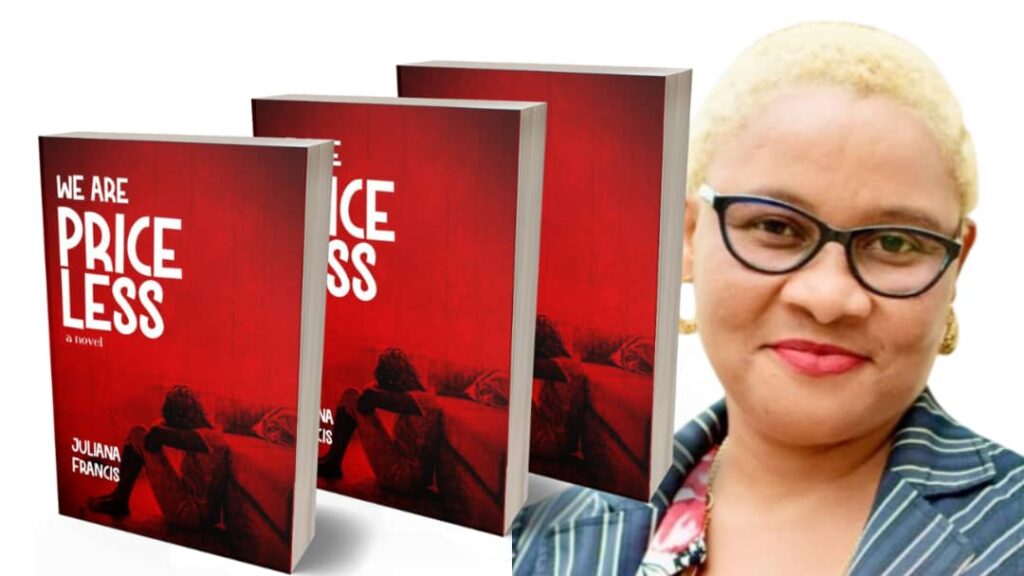Our intern from the Department of Mass Communication, University of Lagos reviews We Are Priceless, a novel on human trafficking by Juliana Francis, investigative reporter, mentor, trainer and gender advocate.
Human life is supposed to be priceless because children are a precious gift from God. Unfortunately, those who engage in human trafficking don’t think so.
For various pecuniary reasons, children, especially girls are usually given to people who made them go through unimaginable experiences.
We Are Priceless centres on the five courageous children who escaped from a hotel where they were forced into sexual slavery and assaulted. Flora, Precious, Jossy, Esther and Lepa decided to take destiny into their own hands by planning their escape from the brutality they faced.
The book explored various ways through which children were deceived into physical and sexual labour by people they trusted; their parents and guardians who are supposed to protect them but rather opted to endanger their lives.
Lepa whose name was Christiana was deceived by her sister’s friend who promised to take her to school in Burkina Faso while Esther was taken by her mother’s friend due to her mother’s hatred for her. Precious was taken by her mother’s friend who said she was going to Lagos to work as a sales girl and money would be sent to her mother to take care of the rest of her siblings.
Flora whose name was Angela Jacob and her sister Emma were sold into sexual slavery by their mother’s brother, a supposed man of God who took them to Lagos on the premise of sending them to school.
Parents and their children were deceived on the premise of taking them to school, using them as child labour (which is wrong in the first instance) and a promise of a better life. The children are beaten, starved and made to swear oaths into submission and promise secrecy and obedience.
Children and women trafficked outside the shores of the country equally experienced gruesome treatment like drinking their urine due to extreme thirst experienced in the desert, some were thrown offshore into the deep sea for those who travelled by sea and so on. The few who survived had their passports seized, made to swear oaths and forced into prostitution in a bid to pay back the money used to take them overseas. In extreme cases, they were transferred from one master to another without their knowledge.
The few who regain their freedom would then come to their various communities looking all glamorous with the same promise of riches to children and their parents leading to an unending chain of trafficking.
Juliana Francis also explored the sexual molestation of children by their parents. Roseanne who was a key agent in child trafficking was sexually molested by her father, a senator from age 13 till she got admitted into the tertiary institution.
The organization National Agency for the Prohibition of Traffic in Persons (NAPTIP) rescued, counselled, rehabilitated and carried out various medical tests and treatments on them to restore them to the peak of their health. The organization ensured everyone involved directly and indirectly was fished out and brought to book. For a country to effectively curb human trafficking, a fully functional organization like NAPTIP must be in place.
Juliana Francis advises parents to only give birth to a few children that they can effectively train so they won’t have to send their children to relatives and people to help train them. No one is to be trusted in money issues especially with the life of children because they are priceless.
The book highlights the danger of child-trafficking and the urgent need to address the criminal act by those who engage in it.
Trafficking leaves its victim scarred, all dreams and aspirations robbed, and health complications ranging from sexual diseases to mental issues and many others. Measures must be taken to curb this inhumane act.

